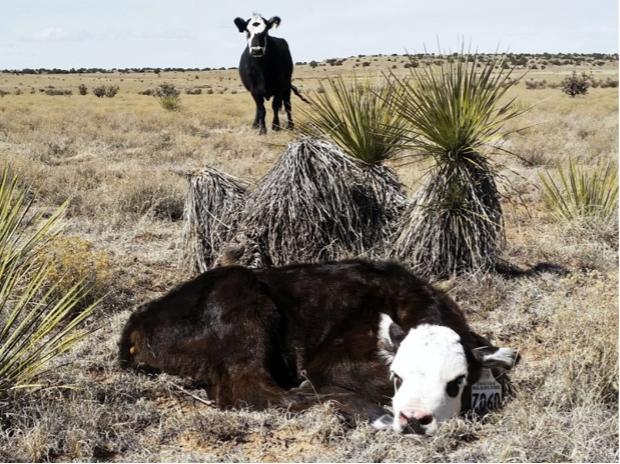For more details about an impact, contact information for NMSU ACES faculty and staff is available at the online directory.
For general questions regarding impacts in this database, please contact Claire Montoya at ccortner@nmsu.edu.

Supplementing Arginine to Beef Cows During Gestation Can Alter Fetal Development
Forage quality in a beef cow grazing system can often be insufficient in nutrients to adequately support the development of the growing fetus. This is important to producers as the proper development of offspring during pregnancy can have long lasting impact on herd productivity. Supplements high in protein are most commonly fed during times of poor forage quality, however, it has been shown that the provision of specific amino acids could alter the growth and development of the growing fetus. One such amino acid, arginine, has been shown to increase blood flow, which would benefit the growing fetus by supplying greater amounts of nutrients during gestation. Cows have been supplemented with arginine during early gestation (d 0 to 60). Fetal and maternal tissues have been collected to look at angiogenic factors that could be impacted by arginine supplementation. Additionally, calves born to dams fed arginine during early gestation were monitored for growth and carcass characteristics after birth to harvest. Provision of supplemental arginine to dams during pregnancy has altered pancreas and liver development. Specifically, the ability of the liver to carry out gluconeogenesis, a key metabolic pathway for production of glucose. Additionally, increased offspring pancreas insulin production. In combination, these can improve the animal’s ability to adapt to nutrient deprived environments. Furthermore, when fed in early gestation, arginine was shown to positively increase factors that regulate the production of blood vessels in maternal tissues. Although preliminary, this work demonstrates the value of supplementing arginine during critical developmental time periods during gestation, which will ultimately provide greater opportunity for offspring to be more resilient to environments with limited nutrient availability.